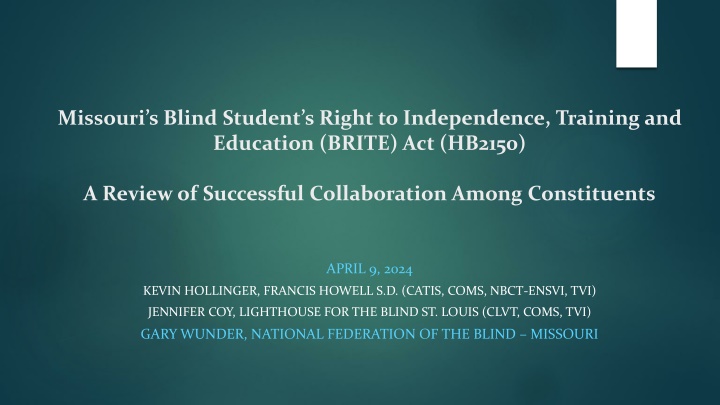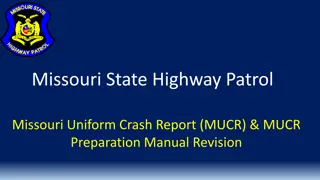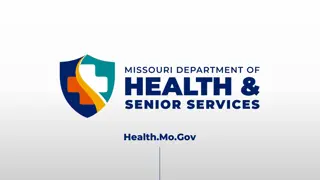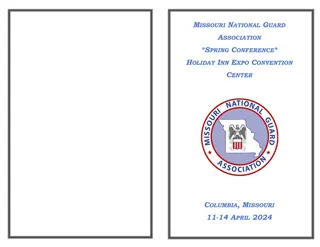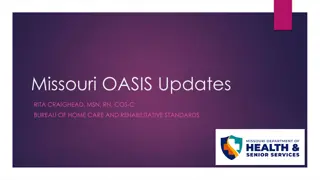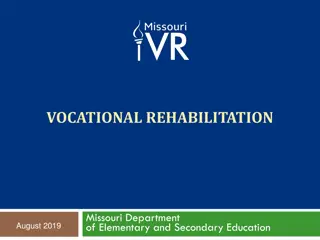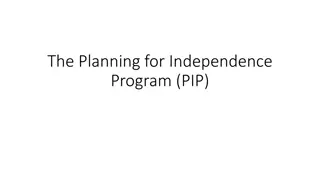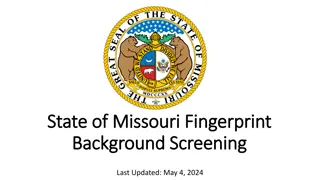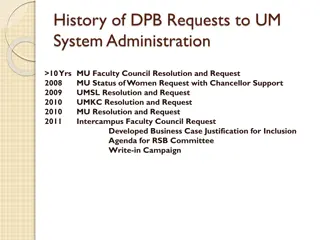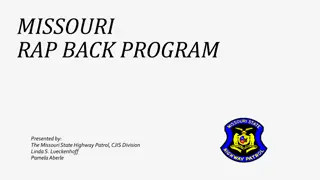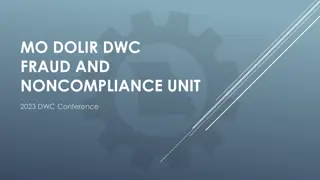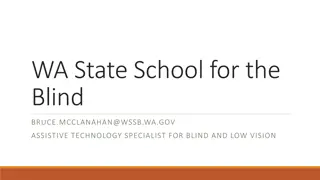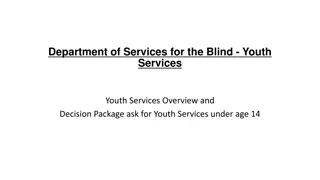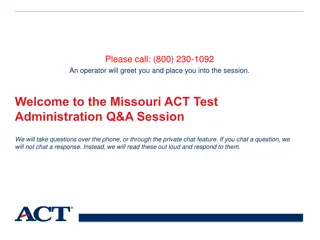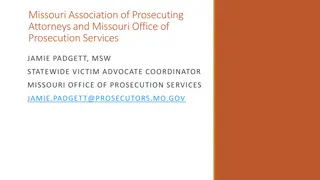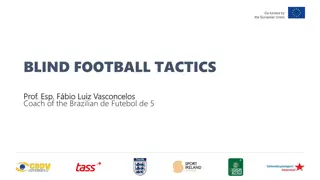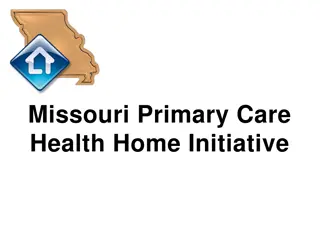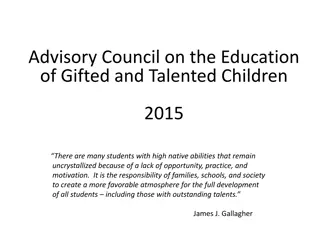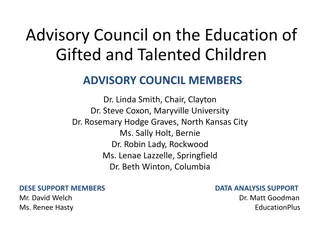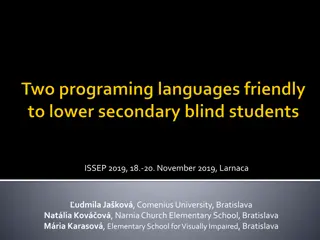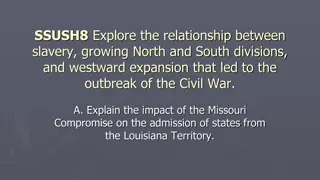Successful Collaboration for Missouri's Blind Students' Independence Act
This review discusses collaboration among Missouri constituents in developing the BRITE Act, ensuring visually impaired students receive Braille instruction and assistive technologies by certified professionals. Explore key components, outcomes, and next steps.
Download Presentation

Please find below an Image/Link to download the presentation.
The content on the website is provided AS IS for your information and personal use only. It may not be sold, licensed, or shared on other websites without obtaining consent from the author.If you encounter any issues during the download, it is possible that the publisher has removed the file from their server.
You are allowed to download the files provided on this website for personal or commercial use, subject to the condition that they are used lawfully. All files are the property of their respective owners.
The content on the website is provided AS IS for your information and personal use only. It may not be sold, licensed, or shared on other websites without obtaining consent from the author.
E N D
Presentation Transcript
Missouris Blind Students Right to Independence, Training and Education (BRITE) Act (HB2150) A Review of Successful Collaboration Among Constituents APRIL 9, 2024 KEVIN HOLLINGER, FRANCIS HOWELL S.D. (CATIS, COMS, NBCT-ENSVI, TVI) JENNIFER COY, LIGHTHOUSE FOR THE BLIND ST. LOUIS (CLVT, COMS, TVI) GARY WUNDER, NATIONAL FEDERATION OF THE BLIND MISSOURI
SESSION DESCRIPTION This session explores the collaborative effort among Missouri constituents who developed the BRITE Act. BRITE is now a law ensuring all Missouri students with a VI receive instruction in Braille reading and writing, AT and FVLMAs by highly qualified, certified professionals. This law also specifies all areas of the ECC.
agenda Introductions Outcomes Definitions and Acronyms Background Task Force Creation & Efforts Wrangling The B.R.I.T.E. ACT Bridging the Gap The Teeth Engagement and Next Steps Contact Us
Outcomes Compare and contrast the initial NATIONAL BRITE BILL developed by the NFB with final Missouri BRITE ACT law. 1. Identify key components of the BRITE ACT which directly impact Braille reading and writing as well as the provisions for access and assistive technologies supporting Braille literacy. 2. Increase knowledge of the process a working group of constituents to re- author, advocate for and ultimately see passage of the BRITE ACT. 3. Generate questions or concerns so that your input can help develop a position paper regarding the BRITE ACT. 4.
Definitions & Acronyms BRITE (Blind Student s Right to Independence, Training and Education ) Bill: proposed legislation Act: the law FVA = Functional Vision Assessment LMA = Learning Media Assessment NFB = National Federation of the Blind COMS / NOMC = Orientation & Mobility Specialists with certification OMA = Orientation & Mobility Assessment TVI = Teacher of Students with Visual Impairments CATIS / NACTB = Assistive Technology Instructors with certification VIS = Vision Impairment Specialist (a licensed/certified professional working with children who are visually impaired) CVRT / NCRTB = Rehabilitation Teacher/Therapists with certification ECC = Expanded Core Curriculum
Background of BRITE BILL Dec 2020: National Association of Blind Students (NABS) posted a model legislation proposal on their site (NABS is a division of NFB) Dec 2020: NFB launches the BRITE Bill as a state-level initiative NFB provided model legislation Early 2021: NFB MO convenes group of stakeholders to pursue BRITE Bill in MO March 2021 First Read: MO House Bill 1360 Representative Chuck Basye (bill died in Chamber) MO House Bill 1381 Representative Brenda Shields (reintroduced) April 2021: Public Hearing Completed and Action Postponed Enough Opposition through testimony postponed the Bill the Task Force was created
Task force Creation Task Force / Work-Group formed and met on May 7, 2021 Task Force Members: Jenny Carmack, National Federation of the Blind of Missouri Jenn Coy, Lighthouse for the Blind - St. Louis Kevin Hollinger, Francis Howell School District, Vision Dept Carla Keirns, Missouri Blind Task Force Mandy Keys, Cape Girardeau School District Special Education Dept Anne Silea, Delta Gamma Center Shelia Wright, National Federation of the Blind of Missouri Gary Wunder, National Federation of the Blind of Missouri
Task force efforts Multiple virtual meetings and constant working behind the scenes by all members (interviews, feedback, research, etc.) Constituents: Parents, Vision Impairment Specialists, Administrators, Students, etc. Final Draft submitted to Representative Shields on August 4 Governor Parsons signed BRITE BILL into law on August 8 Presented to the MO Blind Task Force on August 10 Letter to all MO Directors of Special Education and State Schools for the Severely Handicapped on August 11
But Why. Wrangling with the original BRITE bill: Testimony against for 6 primary reasons All TVIs must be NLS Transcriber Certified Vision Impairment Specialists do not require licensure / certification Did not stipulate home, school and community Did not stipulate of all domains of the ECC (focus was on Braille, AT and O&M) Did not stipulate IFSP (birth-3) or 504 Accommodation Plans No provision for agencies/companies securing contracts without a licensed/certified Vision Impairment Specialist
Brite act (101stGeneral Assembly) HOUSE BILL NO. 2150
Bridging the Gap and Working Together: The Passage of the BRITE Bill for Blind Students in Missouri One of the things we three Federationists learned is that knowing the outcome you want is not the same as knowing how to get it within the system that exists. We learned that ignorance is no crime, but failing to learn can be fatal. We learned about things we weren't familiar with, such as the extended core curriculum and the difference between services under a 504 Plan and under an Individualized Education Plan. We learned about the various certifications that teachers can and should have if they want to claim expertise in their field and be paid for it. We learned how to discuss issues on which we could find easy agreement, and how to intersperse them with the difficult issues that threatened to cause an impasse. We learned to keep our group small enough to be fast and flexible, yet transparent enough that everyone knew what we were doing and how they could become involved at various points in the process.
The big takeaways the Teeth TVIs are not required to seek, gain and maintain NLS Braille Transcriber certification All Vision Impairment Specialists must be licensed/certified Agencies must have proof of current employment of a licensed/certified Vision Impairment Specialist prior to entering a contract The ECC reigns supreme it s now in the law including the home, school and community. Students can take home devices, tools, and materials. Parents can be reimbursed for incurred transportation costs
The BILL BECOMES AN ACT ~ Next Steps Spreading the Word Presentations, In-services, Collaboration NFB MO, NFB Convention, AERBVI International Conference 2022, Getting in Touch with Literacy, Braille Challenge
Legislation, Passage and Next Steps In April of 2021, we convened a work group that was made up of stakeholders to address concerns that had been raised, strengthen the bill text, and garner support for the BRITE Act to be introduced in 2022 by Representative Brenda Shields We are excited that this collaborative effort with educators led to the passage of this law which will improve the quality of education for blind Missouri students. We know that given the proper training, blind people can compete in terms of equality with sighted people in today s labor market. This law ensures that blind Missouri students will have the tools they need to obtain employment and live rewarding and productive lives. Sheila Wright, President MO NFB
Engage OneDrive Folder with Documents (BRITE ACT, Letter to SPED Directors, etc.)
Contact US Jennifer Coy Jcoy@lhbindustries.com Kevin Hollinger email@blindnesspro.com Gary Wunder gwunder@earthlink.net
